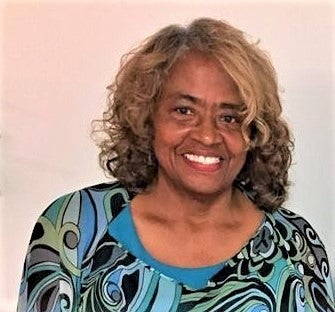The music that influenced my neighborhood
Published 8:23 pm Monday, August 8, 2022
|
Getting your Trinity Audio player ready...
|
I am re-sharing one of the most requested columns I have written. Enjoy!
I really enjoyed the recent PBS program ‘American Masters’ featuring the legendary Duke Ellington. Born in Washington DC in 1889, he was one of the originators of Big Band Jazz music and an unparalleled giant on the American music scene. Ellington led his band, The Washingtonians to the top of fame and music charts for more than fifty years. My parents loved his music and played it often. I remember my Aunt Hattie trying to teach me the dance, the ‘Lindy Hop’ to his music.
But at age eight, my choice of good music was the cache of polka records I owned. My favorite record, ‘Roll Out the Barrel’ by The Andrews Sisters beat anything Ellington could play. And since I could dance the polka flawlessly, there was no need to learn the Lindy Hop.
Over the years, The Supremes, Four Tops, Temptations, Len Barry and The Righteous Brothers replaced polka records.
No other music I listened to could be better than them, until I heard my dad singing Dinah Washington’s version of her hit song ‘Teach Me Tonight.’ I was astonished that he could sing, and I was amazed that he knew all the songs from artist like Cab Calloway, Billy Eckstine and others of that genre that were playing on the car radio as we rode downtown to Ammon’s Bakery. I was really impressed by the songs and borrowed some of his LP’s to check out some Ellington, Bennie Goodman and Louis Armstrong, Della Reese, Artie Shaw or Sarah Vaughn for myself.
I fell in love with Bennie Goodman’s Stompin’ at The Savoy, but it was his clarinet version of ‘Begin the Beguine’ that had me vested in watching The Ed Sullivan Show to watch people dance the Beguine, a dance similar to the Rumba. That’s when I learned dance was more than the Lindy Hop, Polka or the Cha-cha. This music opened the door for me to learn more about the neighborhoods I grew up in.
My dad shared how Washington used to be a big draw for big bands and jazz music. He pointed out a lot of places on Fourth Street where I grew up that used to be known for music in their day. Although most of the big bands did not perform in Washington, their music was played on Juke Boxes. A lot of those places became the social meccas of the community. New York City Jazz and music venues popular also in Harlem influenced the naming of many Black owned restaurant, night clubs and businesses.
He told me how many of them got their names. Some I had to research after I found why they got their names. Some were referred to as ‘Juke Joints.’
The ‘Juke Joint’ that was located closest to the house where I lived was the Dew-Drop-Inn that was at the corner of Fourth and Van Norden Streets. This place way back in the day, seriously way back in the day, was one of many local jazz, big band and music hubs back in the early 30’s to mid 60’s in the music was played on juke boxes and radios, not by the actual performing bands. This Dew Drop Inn’ was named after the famous ‘Dew Drop Inn’ that was built in 1895 in Mandeville Louisiana. The Dew Drop Inn in Mandeville was the first jazz social club for people of color in America. As Jazz in the mid 20th century was spreading like wildfire, Dew Drop (Do Drop) Inns became popular everywhere! By the late 1930’s, there was another place called the Do-Drop-Inn that was at the corner of Fourth and Respess Streets.
The Hollywood Inn also known as the legendary Pomp Credle’s Restaurant at the corner of Fifth and Gladden was named for the Hollywood Inn Jazz Club that was in midtown New York City where Duke Ellington performed in 1946.
The Hi-De-Ho Inn was a sandwich shop that was at the corner of Fourth and Pierce Streets. named after Cab Calloway’s 1947 hit movie Hi-De-Ho. (Calloway performed at The New Theater (part of the Historic Turnage Theater in 1943.)
The Cameo Inn Restaurant was named for a restaurant in Harlem where Ellington performed in 1946.
The Little Caldonia 406 West Fourth Street was named for the popular song (also a short film) recorded by Louis Jordan in 1945.
The Honey Dripper 402 West Fourth Street was named for a very popular song sung by Louis Liggans and The Honey Drippers. The song was so popular it remained on the top of the Billboard R&B charts for 18 weeks from September 1945-January 1946.
The Starlight Club at 227 North Gladden Street was named after a stage scene set in a Louis Armstrong movie in 1934.
The Starlight Club was one of a few places that was named in the Green Book, which was a travel guide of Black businesses in the United States. And the New York Cafe located 303 West Fourth Street was a popular restaurant which my dad eventually brought and turned it into Isaac Payton’s Pool Room.
I’m glad I got to know some really good music and the history behind some of the iconic places whose names a lot of people will remember to this day.
Leesa Jones is a Washington native and the Co-Founder and co-executive director of the Washington Waterfront Underground Railroad Museum.






